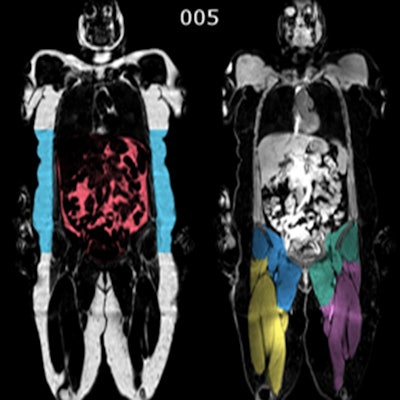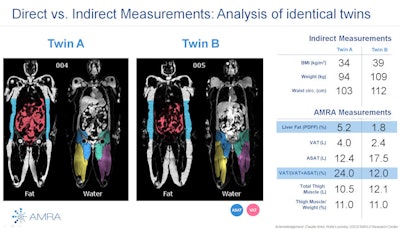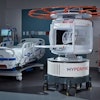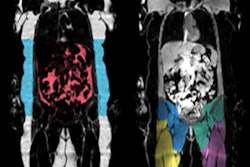
SAN FRANCISCO - Image analysis software developer AMRA Medical hopes to take body fat analysis beyond the measurement of body mass index (BMI) with an application that analyzes MRI scans to assess health risk, according to a presentation on Tuesday at the Digital Medicine & Medtech (DigiMed) Showcase.
AMRA's software is designed to analyze MRI scans and characterize an individual's body fat, which can be a marker for future health risks and a variety of clinical conditions based on its location and composition, according to Eric Converse, AMRA's CEO. Converse gave the talk at DigiMed, which is a side meeting to the J.P. Morgan Healthcare Conference.
While a person's degree of body fat -- based on measures such as BMI -- has generally been acknowledged as a marker of health risk, only recently have clinicians learned that the type of fat and its location can change the risk for different conditions.
AMRA's Profiler protocol functions on standard MRI scanners, and it enables users to perform body fat composition analysis in scans that can be as short as six minutes. It also can work with MRI scout scans, Converse said.
 AMRA Profiler software shows different measurements derived from body fat analysis of identical twins.
AMRA Profiler software shows different measurements derived from body fat analysis of identical twins.Information from the scans is sent to AMRA's servers in the cloud, where it is analyzed and returned to the company's customers. So far, AMRA has focused on working with pharmaceutical companies using the software for clinical trials; for example, it has a relationship with the UK Biobank, a massive research project in the U.K. in which 500,000 people have been enrolled to receive a variety of clinical tests and to be followed longitudinally over time.
AMRA sees four main clinical areas for the Profiler software: analyzing diseases of the liver and musculoskeletal system, as well as metabolic and wasting diseases. The U.S. Food and Drug Administration (FDA) gave AMRA clearance to market Profiler in December, but the company plans to conduct additional clinical trials to garner support to apply for insurance reimbursement for the use of the technique, Converse said.
AMRA has relationships with GE Healthcare and Siemens Healthineers, with its scanning protocol factory-loaded on all GE MRI scanners shipped since 2016. The protocol is also available through Siemens' app store for use by its customers.
The company envisions that its software could eventually move beyond clinical uses and even become part of health and wellness programs, enabling employers or health plans to monitor and guide the health of their members.
AMRA was founded in 2010 as a spin-off from Linköping University in Sweden. It has 30 employees, and Converse joined in October 2018 as CEO after serving as CEO of the core lab firm VirtualScopics (now part of BioTelemetry Research). The company is making the rounds at DigiMed this week as part of a fundraising effort to complement existing investments that include positions held by pharmaceutical firms.



.fFmgij6Hin.png?auto=compress%2Cformat&fit=crop&h=100&q=70&w=100)




.fFmgij6Hin.png?auto=compress%2Cformat&fit=crop&h=167&q=70&w=250)











